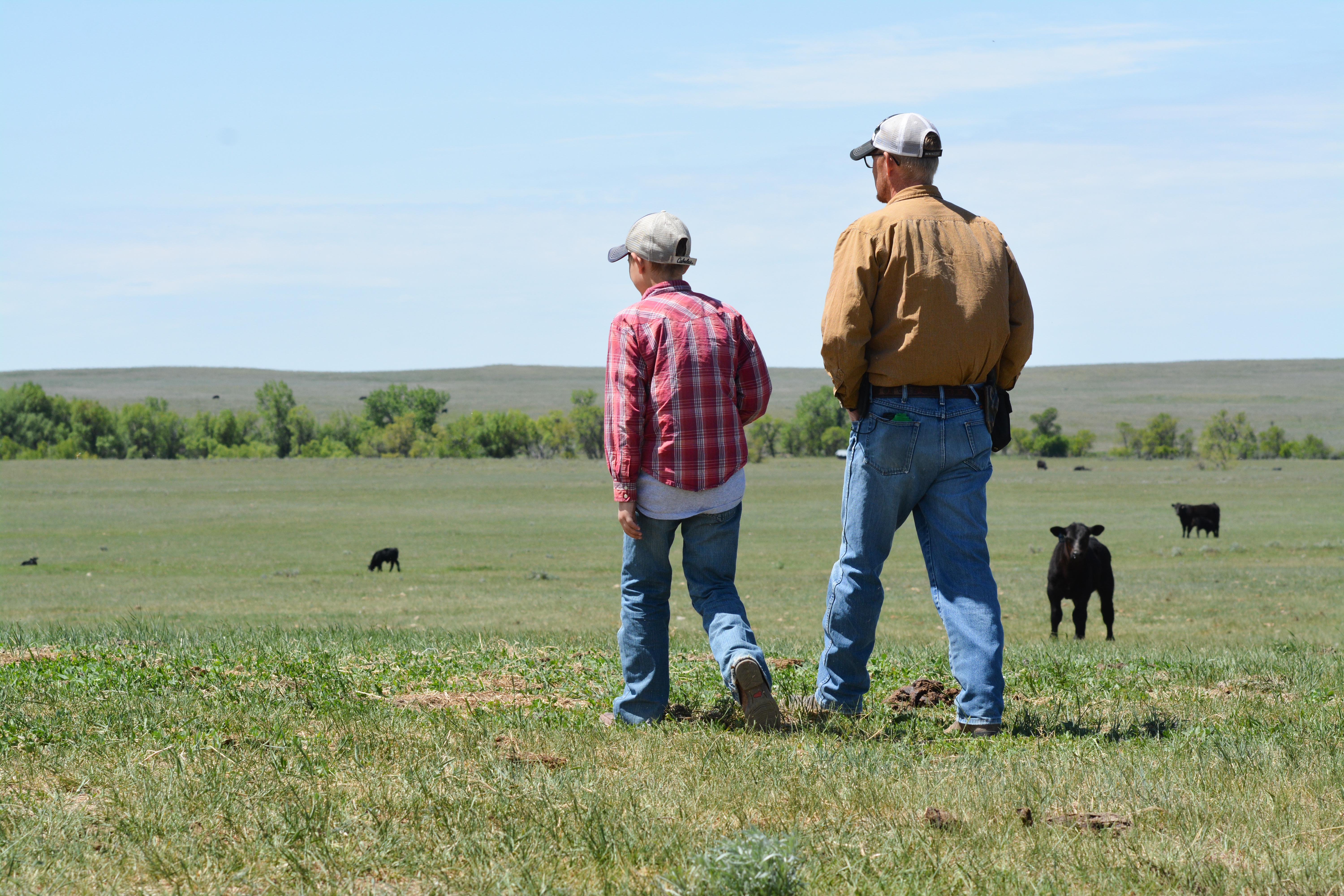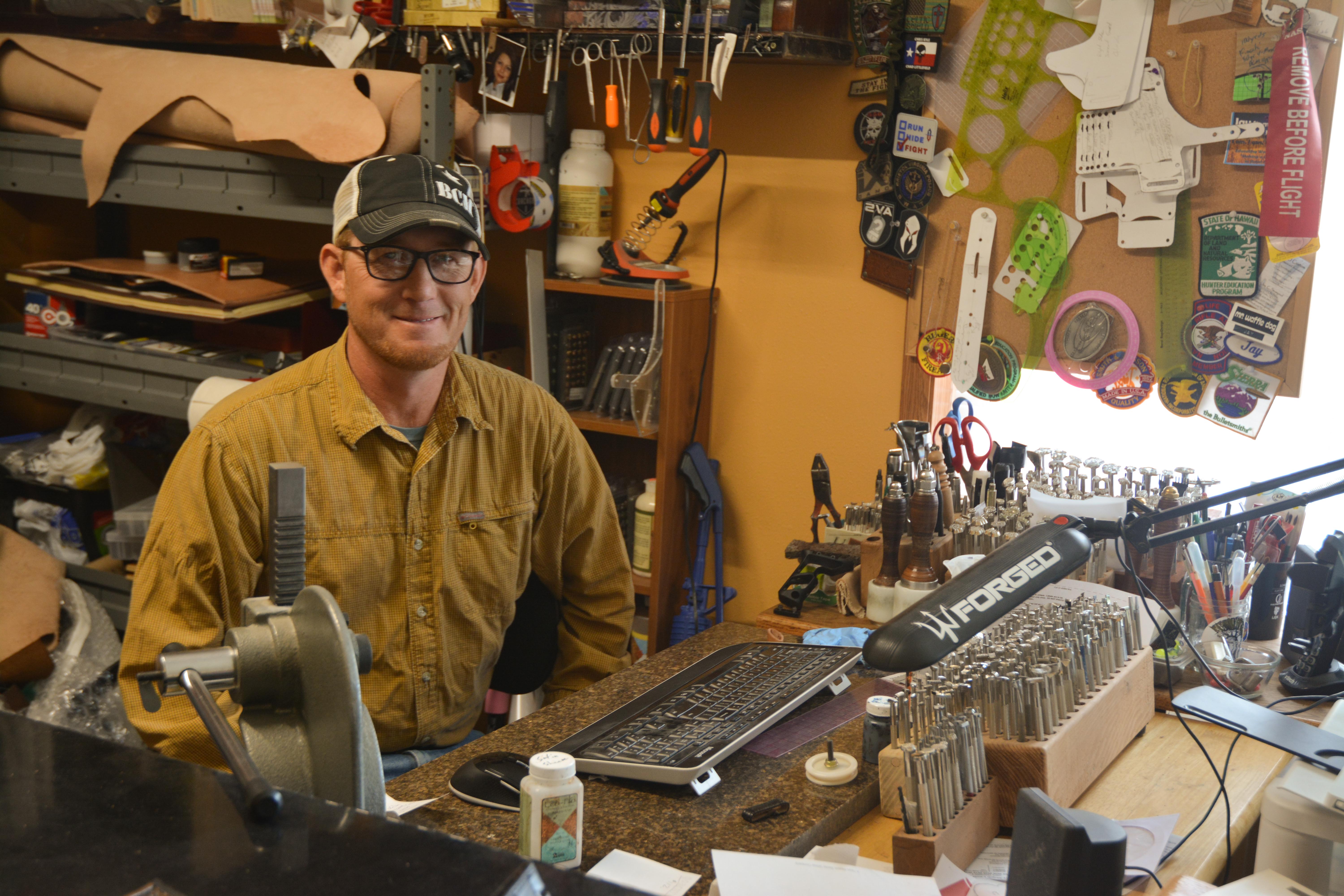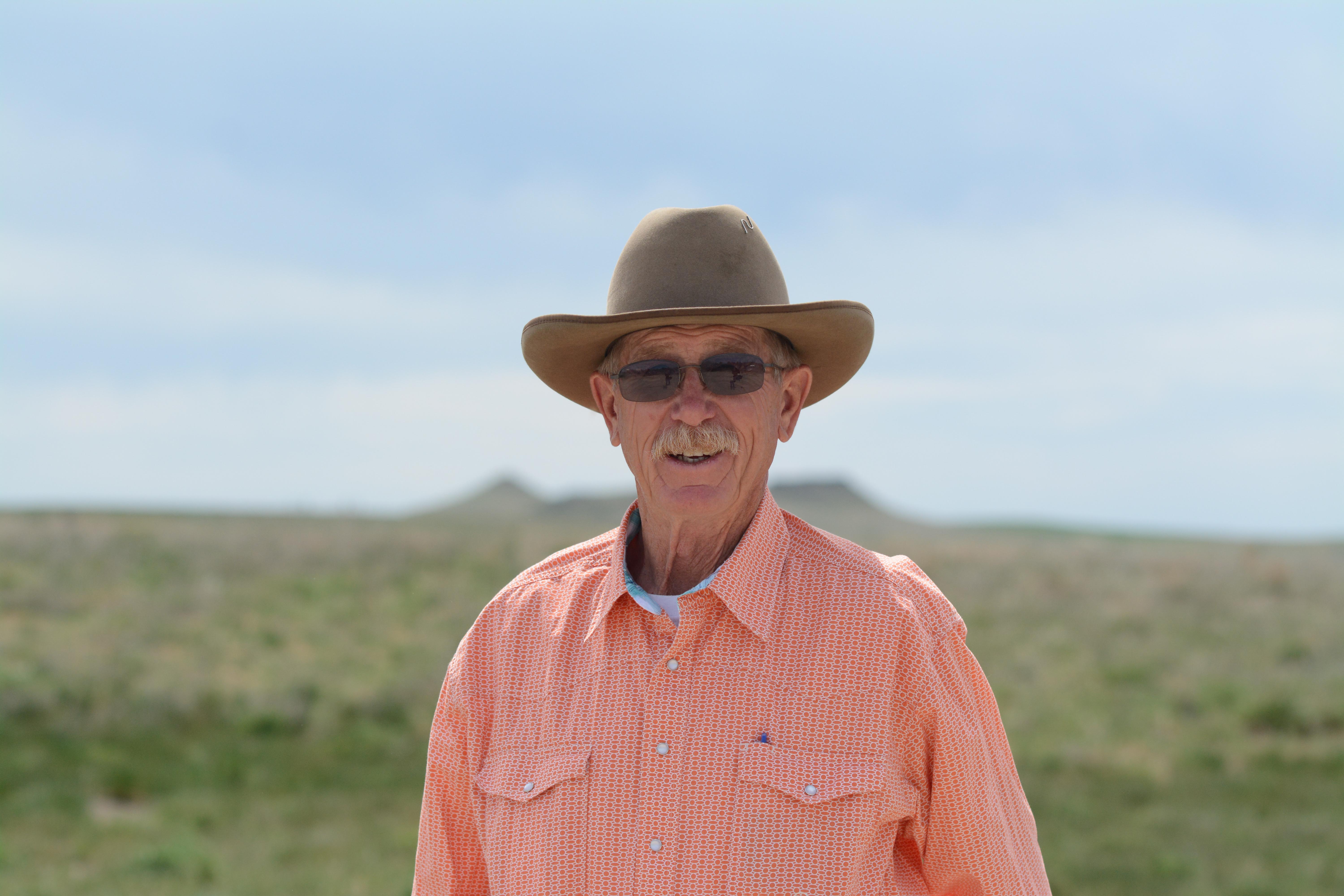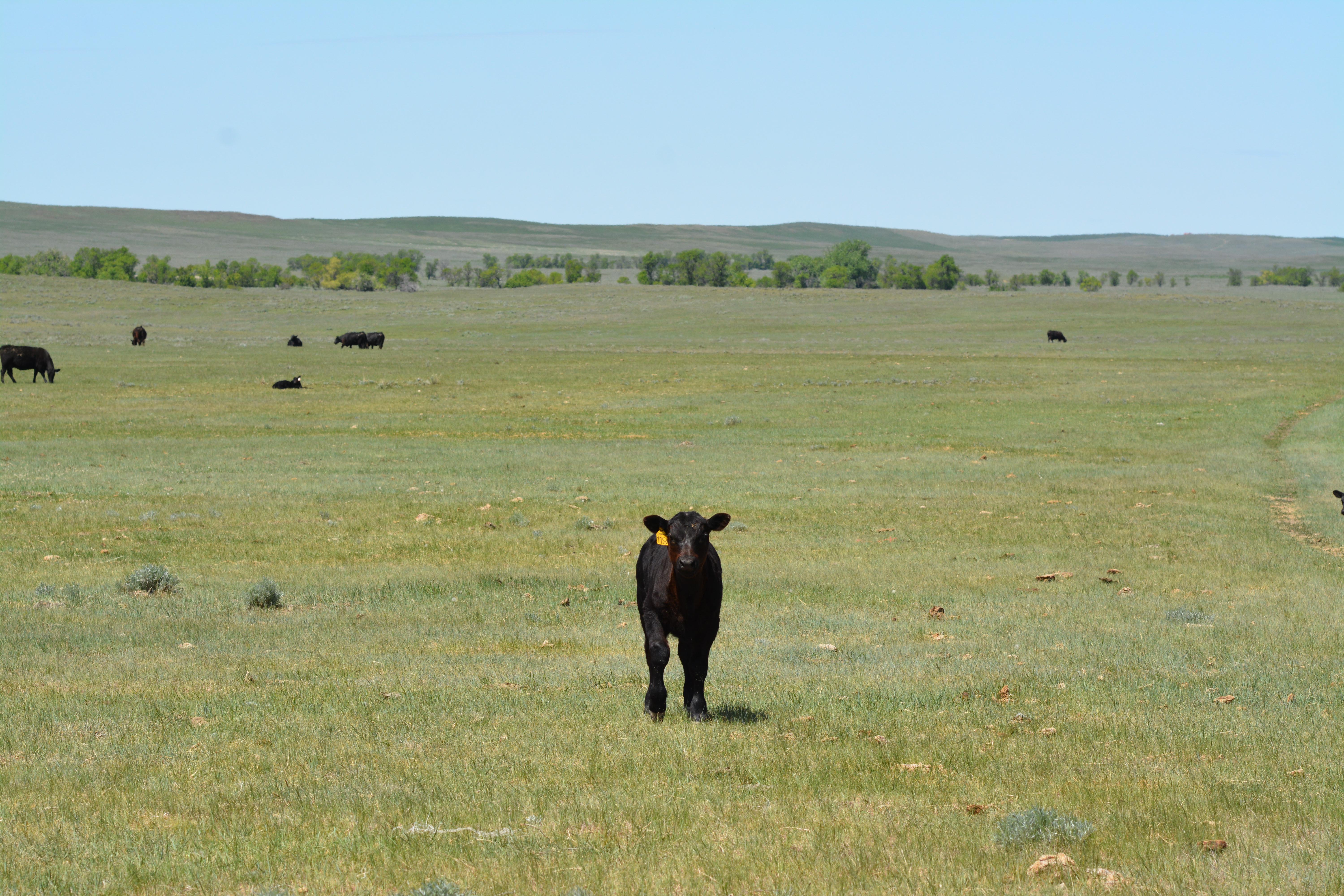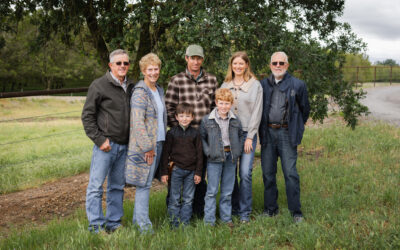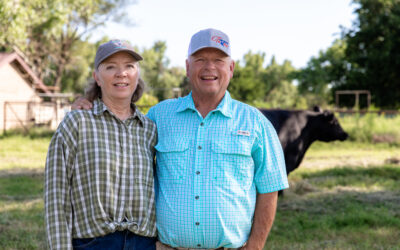The green-hand, fourth-generation rancher
You might say that as you narrowly miss a car accident, or when a cow runs by and not over you, but for cattleman Jay Stomprud, it’s the first expression that comes to mind when thinking of his pre-rancher life compared to today.
Growing up an “Army brat,” Jay lived everywhere from Wall, S.D., and Germany to Virginia and Hawaii before settling in Bozeman, Mont., where he and wife Jen started a family. When his dad, Larry, retired from the service, he came back to the family ranch in western South Dakota, and Jay’s family would visit on holidays.
Traveling down the winding, 3-mile driveway after one such visit, the couple made a decision that would change everything. “Before we hit the mailbox,” Jay says, they’d decided they wanted to give ranching a shot.
“God was really speaking to us. We pulled roots and put the house up for sale and started moving; it was crazy. We sold the house in three weeks for the asking price.”
Shortly after closing, the local housing market and the global economy tanked.
“Our life in Bozeman would have been a real struggle with what happened next,” Jay says frankly. “I worked for an RV company and you know what people don’t buy when a depression hits? They had to lay off a bunch of people. We walked away from the house, paid it off. We moved out here owning our vehicles, with almost zero debt.”
By April, they were living out of his parents’ basement, figuring out ranching and rural life in tandem.
More than ten years had gone by when I was at Jay’s kitchen table this summer, learning about all that he’s learned in that time.
From the musical instruments set up in the living room to the leatherwork shop off to the side, it was easy to see they brought pieces of their “old life” with them to the ranch.
They also brought a different perspective.
“Being’s I didn’t grow up on the ranch, I lived in the regular world, I guess you’d say. Also, being a people person myself,” Jay says, “when it comes to viewing our industry, I do try to look at it through the eyes of what a beef consumer would say.”
Low-stress handling has become a major focus, while Larry, the data-focused one of the pair, selects cattle that will work for every segment.
Both father and son would like to retain ownership some year, but this wasn’t the right one. With less than 10 inches of moisture, something like 60% of normal, cows moved to leased pastures further east after weaning.
Financially, it will be a tough year, but Jay doesn’t second guess the decision to move.
“We came out to the ranch later in life, and we have really come to love the lifestyle and what goes with it,” the rancher says. “In the process, we’ve learned a lot about conserving the land, taking care of the grass and how to try to make a living doing it and raising kids at the same time.”
Faith and a little experience assures them, it’ll all work out.
May your bottom line be filled with black ink,
Miranda
PS- Look for the rest of the story in an upcoming issue of the Angus Journal.
You may also like
Legacy in the Golden Land
On a quiet stretch of Northern California rangeland, a different story unfolds. The Borror family’s legacy modestly speaks through the cattle they raise, the ground they steward. The generations who’ve made a life here demonstrate commitment to doing things right, even when no one is watching.
Helping Hands, Helping Herds
“When I die, I want to come back as one of your cows,” murmurs a friend to Steve Zybach. Full to the brim from an alfalfa ration every day, bountiful fields of lovegrass stretched out across the Texas Panhandle—and owners who leave no ounce of cattle care up for question. The Zybachs’ motivation for this level of dedication to their Angus cattle is simply love.
An Ambassador for All
Joanie, with daughter Lindsey and her husband, Adam Hall, raise registered Angus cattle with two primary goals: producing high-quality seedstock that perform well in a wide variety of environments and ensuring end-user satisfaction. Those goals tie everything together, from promoting Angus to other producers to sharing their story with CAB partners and beef consumers.

